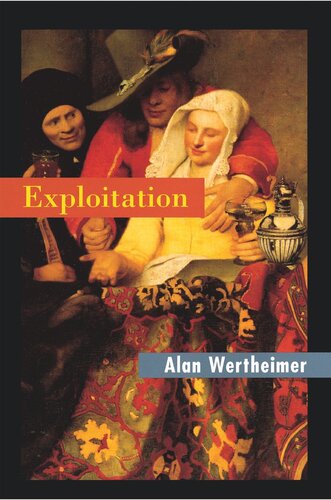

Most ebook files are in PDF format, so you can easily read them using various software such as Foxit Reader or directly on the Google Chrome browser.
Some ebook files are released by publishers in other formats such as .awz, .mobi, .epub, .fb2, etc. You may need to install specific software to read these formats on mobile/PC, such as Calibre.
Please read the tutorial at this link: https://ebookbell.com/faq
We offer FREE conversion to the popular formats you request; however, this may take some time. Therefore, right after payment, please email us, and we will try to provide the service as quickly as possible.
For some exceptional file formats or broken links (if any), please refrain from opening any disputes. Instead, email us first, and we will try to assist within a maximum of 6 hours.
EbookBell Team

4.0
76 reviewsWhat is the basis for arguing that a volunteer army exploits citizens who lack civilian career opportunities? How do we determine that a doctor who has sex with his patients is exploiting them? In this book, Alan Wertheimer seeks to identify when a transaction or relationship can be properly regarded as exploitative--and not oppressive, manipulative, or morally deficient in some other way--and explores the moral weight of taking unfair advantage. Among the first political philosophers to examine this important topic from a non-Marxist perspective, Wertheimer writes about ordinary experience in an accessible yet philosophically penetrating way. He considers whether it is seriously wrong for a party to exploit another if the transaction is consensual and mutually advantageous, whether society can justifiably prohibit people from entering into such a transaction, and whether it is wrong to allow oneself to be exploited.
Wertheimer first considers several contexts commonly characterized as exploitive, including surrogate motherhood, unconscionable contracts, the exploitation of student athletes, and sexual exploitation in psychotherapy. In a section outlining his theory of exploitation, he sets forth the criteria for a fair transaction and the point at which we can properly say that a party has consented. Whereas many discussions of exploitation have dealt primarily with cases in which one party harms or coerces another, Wertheimer's book focuses on what makes a mutually advantageous and consensual transaction exploitive and analyzes the moral and legal implications of such exploitation.